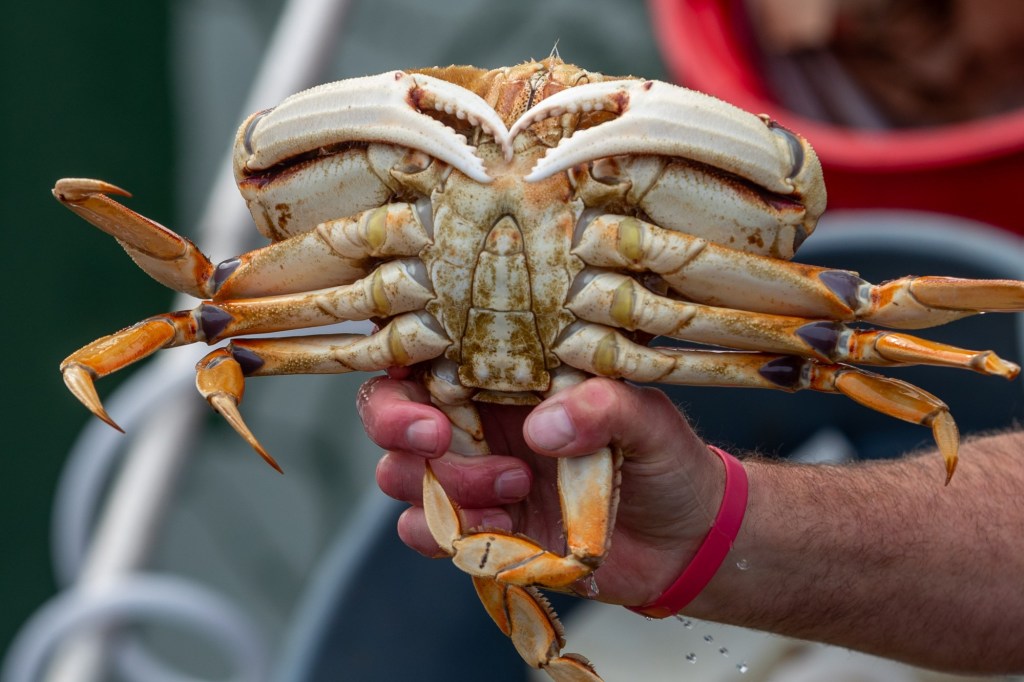Again this year, California officials are delaying the state’s commercial Dungeness crab season because of the “numerous reports” throughout 2025 of migrating humpback whales getting ensnared by old crab-pot fishing lines and other gear.
The upcoming season normally would start Nov. 15 in coastal waters from the Oregon state line to the Mexican border. The next assessment will take place in mid-December, which could allow for the season to open around Jan. 1. But that means commercially caught crab will not appear on holiday dinner tables in 2025.
Recreational crabbers will be allowed to begin their season — with restrictions — in many parts of the state. However, a toxin found in Northern California waters will postpone fishing there.
The decisions came down Friday afternoon from Charlton H. Bonham, director of the California Department of Fish and Wildlife, and were made in consultation with representatives of the fishing industry, environmental organizations and scientists.
The head of the Pacific Coast Federation of Fisherman’s Association thanked state officials for early planning and responsiveness but lamented the impact on the industry.
“Another year of a delayed commercial Dungeness crab season is incredibly difficult for our fleet and port communities,” Lisa Damrosch, the association’s executive director, said in a statement. “However, given the current risk assessment process, the commercial fleet supported this outcome as the most practical path forward.”
The postponement, which gives the migrating whales additional time for safe passage south, was praised by conservation groups.
“Commercial Dungeness crab fishing would be too much of a threat to the whales and sea turtles off our coast right now, so delaying the season is the right move,” said Ben Grundy, oceans campaigner at the Center for Biological Diversity, in reaction to the news. “These animals are being forced to adapt to the changing ocean and a growing Pacific marine heat wave, while dodging mazes of dangerous fishing gear and deadly fast-moving ships.
“Entanglements have spiked off California in recent years, so officials are smartly exercising caution by not allowing more dangerous fishing gear in the water.”
Dr. Geoff Shester, the scientist who serves as Oceana’s California campaign director, sees a hopeful future with the increased use of pop-up crab gear, which allows for fishing while whales migrate safely. “We are pleased to see the state is on track to approve this innovative, whale-safe fishing gear during the spring months.”
In the waters from Oregon to the Sonoma/Mendocino line, state health officials determined that high levels of a toxin called domoic acid would pose a public health risk, hence the order banning recreational crabbing until further notice. In other parts of the state, hoop nets and crab snares may be used.
Since 2015, there have been delays in all but one commercial Dungeness season in the Bay Area, primarily because of the risk to whales. High levels of domoic acid, which could sicken anyone who eats the tainted crab, destroyed Northern California’s 2015-2016 commercial season and created delays in other years.
Originally Published: October 24, 2025 at 2:46 PM PDT

